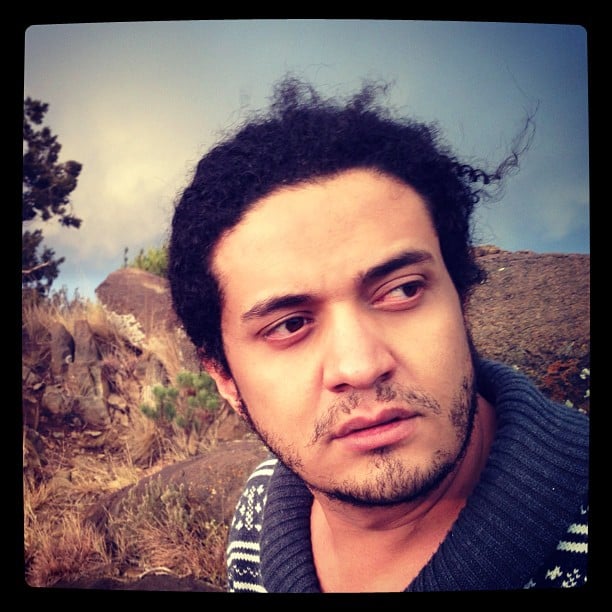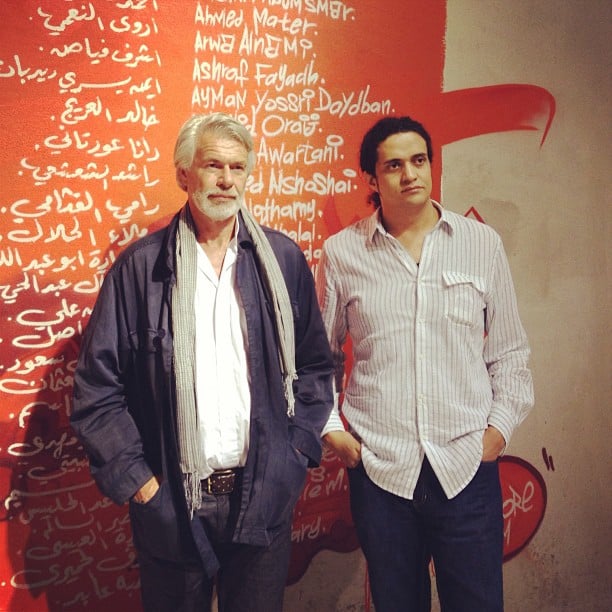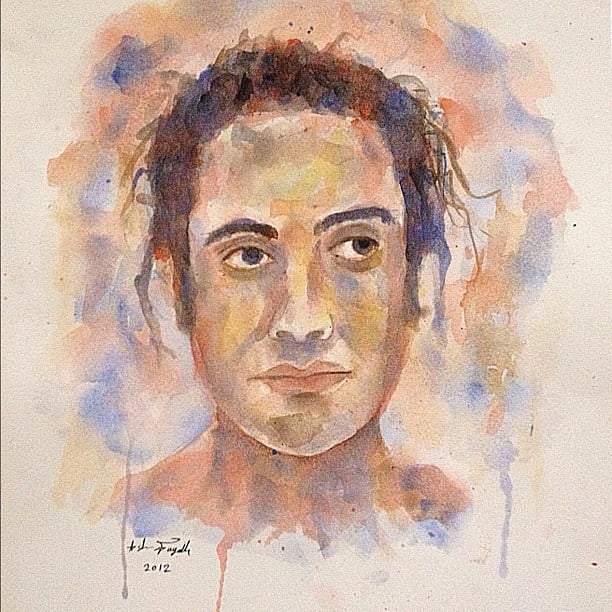Art World
Renowned Writers Unite in Support of Saudi Artist Sentenced to Death
The Palestinian poet and artist has spent two years in prison.

The Palestinian poet and artist has spent two years in prison.

Lorena Muñoz-Alonso

Hundreds of important writers—including Irvine Welsh, Ruth Padel, and A.L. Kennedy—participated in readings across the world yesterday, January 14, to support Palestinian poet Ashraf Fayadh and protest the death sentence that Saudi Arabia has placed on him.
The International Literature Festival (ILB) in Berlin organized the worldwide event, which spanned 122 readings in 44 countries. The international group of writers read poems by Fayadh with the purpose of calling on the UK and US governments to halt the poet’s execution and to demand Saudi Arabia to improve its human rights record.
Irvine Welsh, author of the 1993 cult novel Trainspotting, read at a coffee shop in Chicago and told the Guardian that he hoped the campaign would put “pressure on governments who espouse democracy and freedom to consider their actions in dealing with [Saudi Arabia]”.
“I have distaste for all clerical regimes,” he added. “I believe that people should be free to practice and renounce any religion they see fit. If you believe in human rights and are anti-fundamentalist terrorism, then isolate the regime in Saudi Arabia. Otherwise, you are guilty by association.”

Ashraf Fayadh with Tate outgoing director Chris Dercon.
Photo: Ashraf Fayadh, via Instagram.
The ILB has also sent a letter, signed by 350 writers’ associations and authors, including Nobel laureates Orhan Pamuk and Mario Vargas Llosa, to David Cameron, Barack Obama, and the German foreign ministry asking them to intervene in Fayadh’s case. Also, in early December, UN rights experts urged Saudi Arabia to halt his beheading.
Fayadh was arrested on January 1, 2014, accused of having promoted atheism in his 2008 book of poems Instruction Within. The charges brought against him include apostasy and abandoning his Muslim faith.
“They accused me [of] atheism and spreading some destructive thoughts into society,” Fayadh told the Guardian, explaining that his poems were “just about me being [a] Palestinian refugee… about cultural and philosophical issues. But the religious extremists explained it as destructive ideas against God.”

What appears to be a self-portrait of Ashraf Fayadh.
Photo: Ashraf Fayadh, via Instagram.
After nearly two years in prison, the 35-year-old poet was sentenced to death by Saudi Arabia on Tuesday, November 17, 2015.
Fayadh appealed the death sentence in mid-December, arguing that his conviction for apostasy is based on false and uncorroborated allegations. A panel of judges is scheduled to meet next week to review Fayadh’s appeal.
Fayadh is a member of Edge of Arabia, a British Saudi art organization, which was one of the two groups highlighted at the Armory Show’s Focus Section 2015.